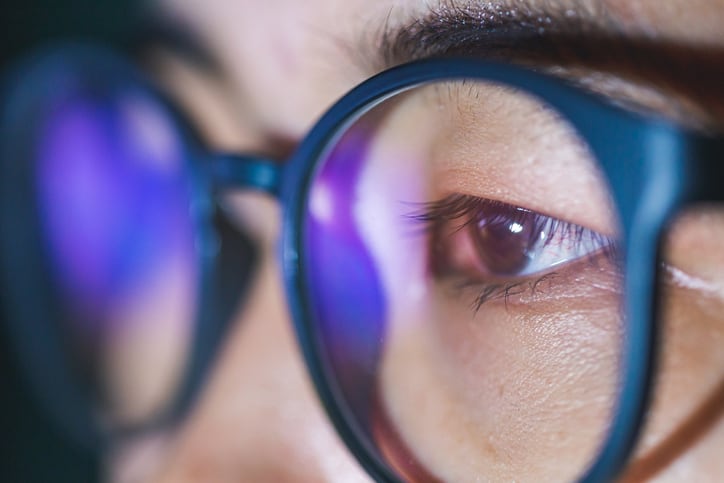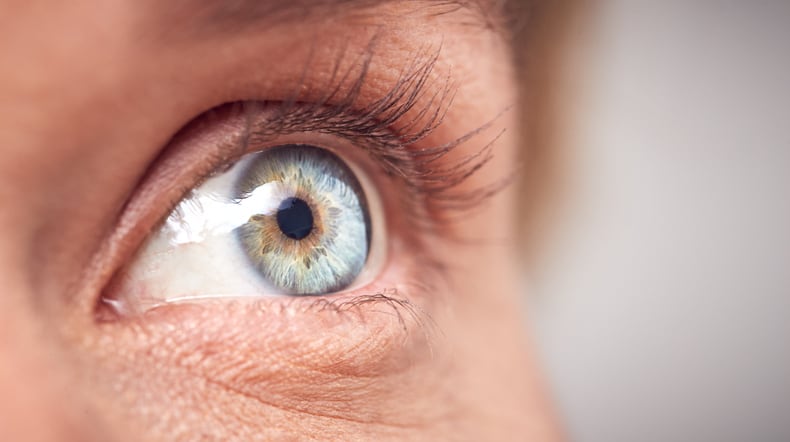With so many activities now hosted on virtual platforms at unprecedented levels, digital devices and UV overexposure have led to an increase in ocular health concerns.
Heightened intraocular pressure (IOP), caused by age and blue light, puts a dangerous strain on the eyes, often developing into conditions such as glaucoma and leaving permanent eye damage. Eye fatigue, photostress, and more are also a result of this lifestyle shift which has led to an escalated demand for eye health ingredients.
In April, Unibar launched CapsiClear, a formulation that contains Capsicum annum, (chili pepper) which contain a variety of carotenoids, including capsanthin, capsorubin, beta-carotene, cryptoxanthin, lutein, phytofluene, and xanthophylland.
Grown in Southern India, the ingredient is standardized to 50% capsanthin and works synergistically with zeaxanthin and cryptoxanthin to provide eye health benefits to support proper management of macular pigment density and eye protection.
According to two clinical studies on the novel ingredient, the capsanthin extract provides a number of ocular health benefits.
“The clinical studies we conducted here in the US have even shown improved reading performance in subjects while using both blue and white light devices. I have yet to see an ingredient deliver such a holistic benefit profile for the eyes and to the degree that capsanthin can,” explained Sevanti Mehta, president of Unibar. “That’s why our discovery of and studies into capsanthin’s benefits for ocular nutrition are so important. It is able to deliver benefits that support macular pigment optical density levels, protect the eyes from blue light, improve the eyes’ ability to recover quickly from photostress, and plays a role in the maintenance of intraocular pressure at normal levels, all via an oral application.
Looking down the road
Mehta added that simply addressing blue light protection is no longer enough, noting that there is a need to adapt and evolve methods to improve eye health for the long road ahead.
“The need for eye protection has taken a tangential shift and mere protection from blue light is no longer sufficient. There needs to be additional focus put into maintaining optimum intraocular pressure (IOP). Increased eye pressure is due to lifestyle, age, and genetic variables but more exposure to blue light is also having an effect, and if heightened IOP is left untreated, it may cause optical nerve damage, which leads to loss of vision. This is why our vision health solutions need to further evolve and provide better preventative care to the different functions within the eye,” explained Mehta. “Filtering blue light is good and necessary, but it is only a part of maintaining proper eye health. A shift to ocular nutrition means taking a more holistic approach. As we look at the different functions within the eye, there is so much more our solutions can do, and putting more importance on also helping maintain optimal IOP is vital to the long-term care of our vision.”
Most at-risk population for UV and blue light eye damage
Mehta told NutraIngredients-USA that age used to be one of the largest risk factors, and while it still is, he is seeing the risk for eye damage increase further in younger populations.
“In this inevitable digital world, I can say almost everybody [is at risk for eye damage]. One factor is that digital screens emit much more blue light than they have in the past because of advancements in technology and everyone uses at least one digital device regularly. The COVID pandemic is adding fuel to the fire because of the online classes for the kids worldwide and professionals are forced to work from home. Both kids and adults are also spending more time playing electronic games and the focus spent on these entertainments result in little blinking, creating photostress challenges and more vulnerable eyes.”
Consumer awareness
With skin-related issues like rashes, wrinkles, and pigmentation on full display, Mehta said more people are aware of protecting their skin, but often disregard the need to shield their eyes. “Because our eye health is often taken for granted, eye protection awareness is nowhere close to what it needs to be. A difficult aspect of eye health awareness is that issues in the eye, like having higher intraocular pressure and optical nerve damage, cannot be recognized by the individual in the early stage and often needs a doctor’s examination to be noticed at all. One should remember that damages in the eyes are irreversible.”
"Consumers should check that the supplements taken by them are for protection from blue light and if they come with additional benefits like for healthy eye pressure. Supplement consumption is constantly increasing around the world and the industry can do a lot more to provide education about ocular nutrition to fight the effects of blue light and other vision health risks when marketing their products. Additionally, optometrists can do a lot to educate about macular degeneration, eye fatigue and intraocular pressure," noted Mehta.
More studies in the works
Mehta told NutraIngredients-USA that previously, dietary supplements were not an option for maintaining optimum eye pressure, proving CapsiClear to be a game changer. “When standardized to 50%, capsanthin becomes bioavailable enough to be able to help reduce intraocular pressure via oral administration. We found that the oral supplementation of capsanthin from Capsicum annum (chili pepper) has shown to maintain optimum eye pressure and also protects from blue light and reduces eye strain and fatigue in both animal and clinical studies done in the US. We plan to further study the benefits of capsanthin supplementation with additional human clinical studies and are working to get FDA GRAS status for our CapsiClear ingredient.”




